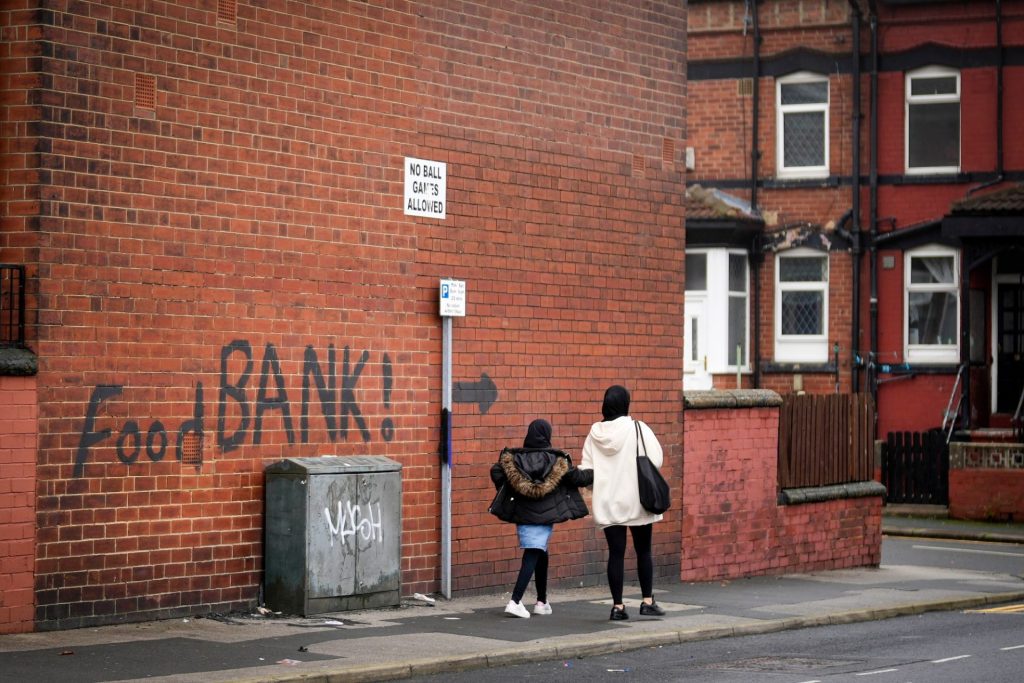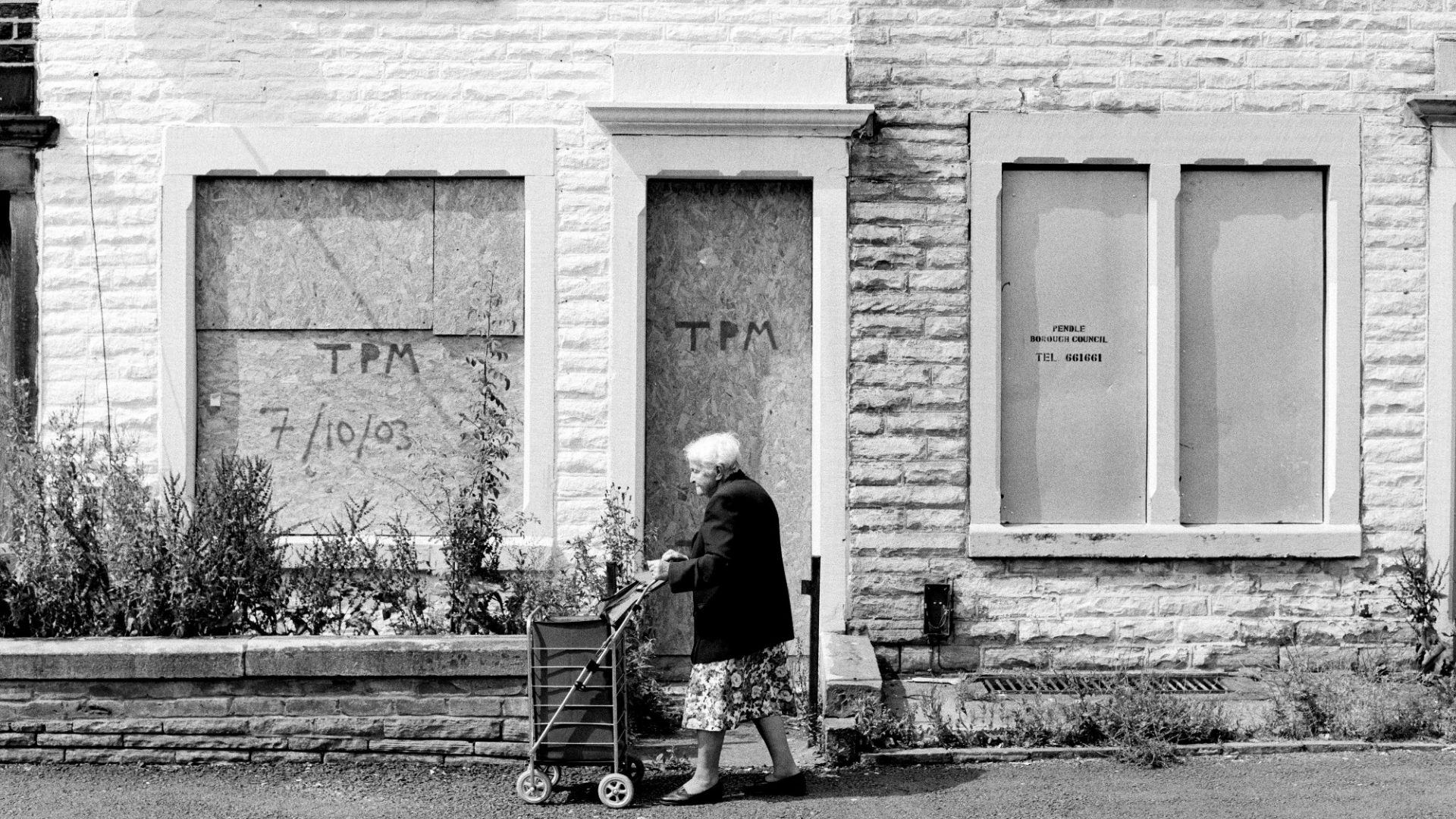The first night of my return to live in Britain after almost 13 years away, I checked in at a west London hotel as the television screen was flashing up the latest news headlines. One story was about a terror suspect who had escaped from prison clinging to the underside of a van and would later be arrested just a bend in the River Thames away from where I was staying. Another concerned a report to police in the county of Lincolnshire of a possible mass murder; it turned out to have been people lying on the floor during their yoga class.
It all fit with reports I’d been seeing while I was away that conveyed an image of the UK as a theatre of dysfunction and absurdity. I mentioned to the receptionist that I’d just come back and had been hearing a lot of comment about how nothing in the country worked. “I think it’s probably the weather,” she replied diplomatically, a reference to the ongoing late summer heatwave.
If the response was quintessentially British, the almost uniformly sour mood of the country felt like something new. It was far from the political promises made just before I left for the United Arab Emirates, Thailand, Belgium and Japan, after an earlier spell in Nigeria.
In 2010, a fresh-faced David Cameron had stood outside Downing Street and declared that his newly formed coalition government would take the “difficult decisions” needed to reach “better times ahead”. Barely three years and a financial crisis earlier, Tony Blair had gone further still, declaring Britain “the greatest nation on earth”.
The comparison between that political era and the present day is illuminating and chastening. I recall well a conversation in Brussels in 2017 with an EU official who had quite a soft spot for Britain. I raised the politically destabilising impact of the country’s chaotic attempts to exit the bloc after the vote to leave the previous year.
“Maybe you need to go off the cliff edge,” he said. “That’s the only way to get change. It might take five, 10 years, and need two or three governments. Then you can decide on what kind of country you want to be.”
That prediction of a painful period of self-discovery looks pretty on the mark, as polls point to a heavy defeat for the ruling Conservatives in the July 4 general election. A national narrative of greatness rooted to a large degree in English exceptionalism and a refusal to reckon with history is collapsing. It has been revealing to watch it from the outside, and see it partly through the experiences of other places and the eyes of other people. The next British government will have to adapt to a more realistic view of the country’s place in the world, as well the domestic impact of profound social changes such as an aging population.
An atmosphere of decay seemed to be everywhere when I returned to the UK in September, especially after enjoying Japan’s excellent public services. The effect of all those spending cuts was clear. Hospital waiting times were ballooning, court backlogs were growing and local councils were veering towards bankruptcy. Some commentators archly described the focus on collapsing services as the “Great Noticing”: problems long apparent to those in poverty were now becoming increasingly clear to the financially better off.
The trend was certainly being registered beyond the UK’s shores. When the UK cancelled the northern part of the HS2 high-speed rail project in October 2023, social media filled with unflattering comparisons with other countries’ initiatives. Japan’s bullet train network, inaugurated in the early 1960s and still expanding according to a decades-long programme, inevitably loomed large.
The sense outside Britain was of a country keeping up appearances by maintaining a few selected prestigious institutions, while the nation rotted around them. The juxtaposition in 2022 of the sober spectacle of Queen Elizabeth II’s funeral and the debacle of Liz Truss’s record-breakingly brief premiership proved particularly jarring.

After Truss’s leadership unravelled, the Washington Post editorial board offered the humiliating damnation of pity to the rulers of what it said “looks increasingly like an isolated Atlantic island state”. “Britain should be more than an exporter of royal gossip and lurid political news,” it wrote.
Other overseas observers provided similarly bracing commentaries. George Yeo, Singapore’s former foreign minister, wrote in the Economist in 2022 of a troubling recent visit to Britain. His old Cambridge college looked “better than ever”, he reported, but the same couldn’t be said of the coastal town of Great Yarmouth.
He travelled there to visit his son via a “slow, rickety train ride”. “My day there made me nostalgic for the Britain I left in the 1970s (Edward Heath’s three-day week notwithstanding),” he wrote. “But it also bothered me that too little had changed.”
The idea of a lost opportunity to renovate Britain resonated with me. Spending time in various territories rich in natural resources made me think about how Britain has managed its own. Abu Dhabi – like Norway and many other countries – has a big sovereign wealth fund to use its energy wealth strategically. The UK could have had one for the North Sea oil that peaked in production during the 1980s, but the money was spent instead on an era of tax cuts and “right to buy” house purchase subsidies.
The price of that is becoming clear as costs related to ageing population and infrastructure are “really coming in with a vengeance,” says John Hawksworth, an economist who has written on North Sea oil money. “The fact that we haven’t saved up for that as a nation is a fairly glaring omission compared with other countries.”
The enduring aftermath of the British empire is another subject that has long been obvious from the outside and has now risen to domestic prominence. What prime minister Tony Blair once described, with world-class euphemism, as the UK’s “outward-looking approach to the world” reverberates in all kinds of obvious and subtle ways today.
It has spawned a growing number of court cases. Causes such as the expulsions of the Chagos islanders and abuses of Kenyans during the Mau Mau uprising have come to the heart of legal London.
A group of thousands of people from the oil-producing region of Nigeria, from where I reported two decades ago, are currently suing Shell in London. They accuse the company of responsibility for polluting their environment, allegations that Shell denies.
Shell’s position in Nigeria has its roots in the colonial era, when it first established a corporate presence in the 1930s. “It’s funny, isn’t it?” says King Emere Okpabi, a claimant and traditional ruler, of the decision to bring action at the institutions of the ex-imperial power. “To get justice, we have to go back to them.”
Even as the former empire has struck back, the UK has been straining to demonstrate its international relevance as “global Britain”. It has searched for new relationships with an urgency fuelled by Brexit. The post-separation hunt for partners includes an “Indo-Pacific tilt” that has created new risks, including of betraying the democratic ideals Britain claims to hold dear.
In Cambodia, the UK has strengthened diplomatic, trade and military links with a country ruled by an authoritarian family dynasty for almost four decades. In 2021, Dominic Raab became the first British foreign secretary to visit for almost 70 years, his aims including to boost trade and the UK’s status as a “force for good in the Indo-Pacific”.
Military links have grown, too: in 2023, the offshore patrol vessel HMS Spey became the first British navy warship to visit Cambodia in 65 years.
Last year, prime minister Hun Sen handed power after 38 years to his son Hun Manet, who has an economics PhD from Bristol University. The handover followed an election in which the main opposition party was banned. Veteran Cambodian opposition politician Mu Sochua, who now lives in exile, says Britain’s cultivation of the government sent a message that there was no point protesting.
“This effect may well be invisible to British policymakers,” she says. “It is keenly felt and resented by Cambodians who demand democracy and who expect more from countries who claim to stand for democratic values.”
Elsewhere in Asia, Britain’s post-Brexit expansionism is creating potential security vulnerabilities. The UK’s expensive – if not always reliable – new aircraft carriers are making tours in the Pacific, home to some of the world’s most contested waters.
China lays claim to most of the South China Sea, which is a spider’s web of competing maritime territorial claims. Britain risks being caught up in conflicts in Asia over which it has little sway, and cannot bring US levels of military power to bear.
From overseas, it has seemed apparent for some time that Britain needs a throughgoing modernisation. Some of that is literal: it has physical problems related to the failure to properly update Victorian-era systems from bridges to railway lines.
Another imperative is to adjust psychologically to the country’s past and modern status in the world. It would help to retire the idea of “Great Britain”, except in its strict geographical sense.
The UK’s internal reckoning is long overdue – although it carries an attendant danger of solipsistic despair. A sense almost of relish runs through claims by some comfortably-off observers that the nation’s future is irredeemably bleak.
“The country is finished,” the conservative commentator and columnist Peter Hitchens declared on X/Twitter back in April. “The only question at the next election will be how quickly we reach the end.”
I found these kinds of takes – including that Britain is now a “third world country” – bizarre. The UK’s possibilities and prospects bear little comparison with nations I’ve reported on that are racked by war, natural disasters or financial ruin. The apocalyptic diagnoses obscure how much of Britain’s malaise stems from legacies of the past and political choices of the present.
These can be addressed and the country’s future salvaged. The UK still has a lot going for it, including historically rooted advantages such as the English language. What it so far lacks, from any mainstream political party, is a programme that gathers the many needed improvements in an inspiring yet realistic story of renewal.
Since I came back, I have often recalled a phrase mentioned to me by David Edgerton, the historian of 20th-century Britain. Edgerton, whose mother is from Argentina and who lived in Uruguay until he was 11 years old, has a certain insider-outsider view of the UK.
What the country needed, he said, was a “politics of modesty”. That meant proper planning and a focus on exploiting existing national strengths, rather than making empty boasts about becoming “world leaders” in various fields.
“With modest means and modest ambitions, we’ll actually achieve something,” Edgerton said. “With immodesty, we’ll achieve nothing.”
Michael Peel is a Financial Times journalist. His book What Everyone Knows About Britain* (*Except the British) is published by Monoray. https://linktr.ee/whateveryoneknowsaboutbritain



